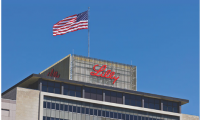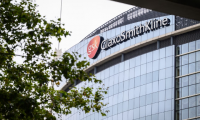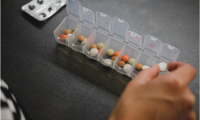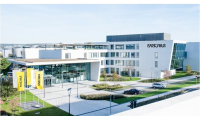-
FDA clears Pfizer’s pneumococcal vaccine for infants and children
- Source: drugdu
- 161
- April 30, 2023
-
Eli Lilly to sell low blood sugar drug Baqsimi to Amphastar in deal worth over $1bn
- Source: drugdu
- 168
- April 28, 2023
-
Biogen’s new strategy brings more pipeline cuts, but leaves deal options open
- Source: drugdu
- 182
- April 27, 2023
-
OTC Narcan will cost ‘less than $50’, company says
- Source: drugdu
- 111
- April 25, 2023
-
GSK to buy Bellus Health and its chronic cough drug for $2B
- Source: drugdu
- 352
- April 20, 2023
-
Chiesi Farmaceutici acquires biopharmaceutical firm Amryt Pharma
- Source: drugdu
- 112
- April 14, 2023
-
GSK will have to pay additional royalties to AstraZeneca on cancer drug Zejula
- Source: drugdu
- 159
- April 6, 2023
-
In $2.6B cell and gene therapy expansion, Sartorius buys viral vector specialist Polyplus
- Source: drugdu
- 272
- April 4, 2023
-
UBS buys Credit Suisse for $3.2 billion as regulators look to shore up the global banking system
- Source: drugdu
- 194
- March 20, 2023
-
Healthcare companies may turn to big banks after SVB’s fall
- Source: drugdu
- 158
- March 17, 2023
your submission has already been received.
OK
Subscribe
Please enter a valid Email address!
Submit
The most relevant industry news & insight will be sent to you every two weeks.













